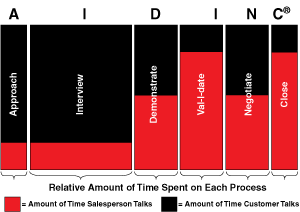In 2017, I attended Phase 1 of the New Frontiers Programme which is run by Enterprise Ireland. The programme ran two nights a week over six weeks. There was no fee to attend. I would highly recommend this programme to anyone starting a new enterprise, whether your idea is just an idea or is a semi-developed product. What follows is a post which gives an outline of night 4 of the course. When fully published, there will be 11 posts documenting all nights of Phase 1. To see a list of published posts, click here.
On the way to tonight’s talk, I had an interesting thought, “What is the next step for this startup and what, if anything is stopping me getting there.” Nothing too groundbreaking but a worthwhile exercise to answer this every few weeks.
Tonight’s facilitator was Roddy Feely. I was not surprised to learn that market analysis and market testing is typically neglected by startups. I had not thought about it much before but it didn’t seem too surprising. Roddy gave some good examples from his career whereby making assumptions on the market ended up in disaster. The message was clear, market research is vital.
An interesting topic that Roddy discussed was sometimes your trading partners will contribute to promotions. So for example, with BookingHawk.com, that may mean that a business using BookingHawk will pay part of the promotion for the launch as it is in their interest to have the system adapted.
For market analysis, a good idea is to try and profile your target market early on in your startup. In other words, try and decide what a Rabbit, Deer and Elephant look like. Another thing to think about is how are businesses currently solving the pain of the problem that your service ails. A great suggestion was to set up Google alerts for your potential customers as well as your competitors. It may have seen obvious, but Roddy mentioned that not all data needs to be shown to potential investors, just the data that validates your product/service.
A relevant point was made at this stage regarding applications for Phase 2 of New Frontiers, the point being that when presenting a business case, ensure that figures/sales targets etc correlate back to team size and skills.
Roddy then spent some time explaining the importance of identifying valuable leads and not just chasing everyone that appears to be a fit for your product/service. Once this step has been achieved, the 6 chronological steps to interact with your valuable leads should be:
- Approach
- Interview
- Demonstrate
- Validate
- Negotiate
- Close
The second part of the talk was even more useful and interesting. Firstly Roddy asked each of us to write down the five most valued elements of our services/products according to our customers. For BookingHawk.com, I went with (in no particular order):
- Ease of Use
- New Customer Acquisition
- Out Of Hours Client Acquisition
- Flexibility
- Price
Roddy suggested that we make sure that our customer agrees with our assessments and implored us not to take them as fact until we do. A very interesting point was then made, apparently, 74% of buying decisions are made by the time the lead has agreed to meet with you. the course facilitator David then made the following statement which was very striking: “That means for those leads that you do not convert, the problem was your selling/demonstration technique.” This point hit hard and made me think more about how I conduct demos.
In the past few days, I read an article about how the more you talk the less likely the prospect is to make a purchase. With that fresh in my mind, Roddy then showed some very interesting charts showing the amount of time you should spend talking vs the amount of time you should spend listening when in a demonstration. Here is a replica of the image:

So there is a lesson here about listening more to prospects. Roddy suggested a good way start a demo might be to ask “So what about our system or my email made you want to meet with me today?” Thinking back to a successful demonstration that I had given, I definitely opened by inviting the prospect to talk about their ‘pain’ that BookingHawk.com could solve. Aided with some more slides, Roddy closed by telling us the key is planning the meeting and planning the follow-up, concepts which I was familiar but his slides put more structure into the planning.
We were given some homework to do regarding market analysis. Perhaps when it is complete I will write another blog post on how I went about it.
Overall, I thought tonight was the most informative and valuable night of the New Frontiers course so far. As a result of this information, I determined the following questions to open with when giving a sales demo:
“What was it about Booking Hawk that got your interest?”
“Have you looked at taking online bookings before, if so, what stopped you”?
“What has stopped you taking online bookings before?”
“Why do you think it is important to start taking online bookings?”
“What was it that led you to agree to meet with me today?”
Read Night 2 – Idea Exploration and Creative Thinking
Read Night 3 – Market Opportunity Problem / Pain ID
Read Night 5 – Route To Market
Read Night 6 – Lean Business Model Canvas
Read Night 7 – Marketing Communications
Read Night 9 – Business Case Document and Team Makeup
Read Night 10 – Financial Planning
Read Nights 11 & 12 – Presenting The Case
If you know someone that would benefit from online booking, please let me know about them. I will send you a two paragraph email for you to forward to your friend so it couldn’t be less hassle for you to help a couple of Irish businesses to grow!
